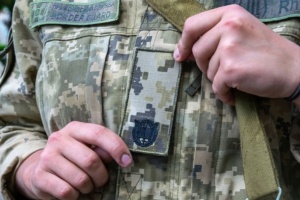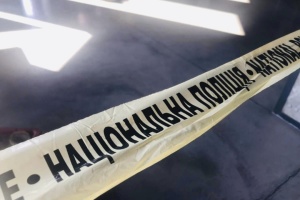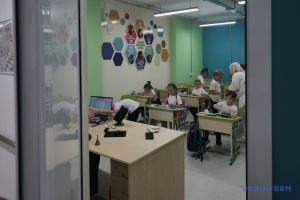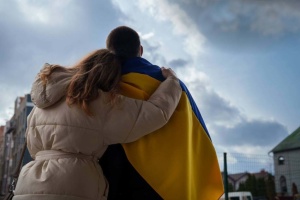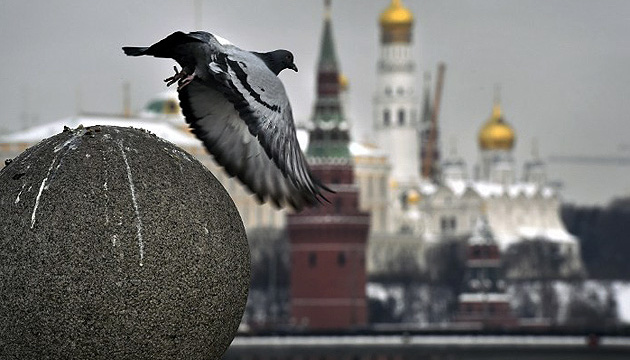
Russians’ mood: Anxiety until the end
At the beginning of the war, many were shocked by the number of Russians who supported the attack on “fraternal” Ukraine and refused to believe even their relatives that they were being deceived. This demonstrated the regime’s ability to convince the population of the existence of the threat and to win trust in a government that knows better how to protect Russia. In Ukraine, because of such ostentatious unanimity, even a meme about “good Russians” appeared, who, allegedly, do not exist.
There were two other groups in Russia: those who condemned the war, as well as those who could not decide because they “did not know where the truth was.”
Importantly, a large proportion of the Russians who support the war are not its steadfast supporters. Many of them have doubts that only grow over time. However, trained to follow the regime, they are more likely to go with the flow, supporting their own country automatically, than to act as proactive apologists for the war. Therefore, communicating a different standpoint even to them makes some sense.
Likewise, the fact is that there is another Russia that has condemned the war. Among the vivid examples of disagreement with aggression is the position of a number of iconic or even cult Soviet and Russian artists, in particular, Alla Pugacheva, Andrey Makarevich, Yuri Shevchuk, Zemfira. Maxim Pokrovskyi is famous for his anti-war songs. As an example, we can cite his recent song “Anthem of the Doomed (Come on, Orcs!)” Another Russian artist, the author of the cartoon “Masyanya” Oleh Kuvaev, who had previously created several anti-war cycles in his famous cartoon series, created a video for it. There are also other opinion leaders. Millions of Russians voted, including with their feet, by leaving the country. When a well-known youth blogger Danya Milokhin, who left Russia, sang the anthem of Ukraine during the streaming, propagandist Skabeyeva responded: “Let’s assume he burned the bridges.”
By the way, it is Putin’s propaganda that benefits the most from interpreting the situation as if “all Russians supported the war.” It benefits from making the advocates of peace and democracy feel marginalized.
In fact, the split between z-patriots and opponents of the war with Ukraine intensifies with the development of escalation in the war. For example, the propagandist Zakhar Prilepin, who “is responsible for the culture” from the war party, is also at war with the wrong liberal artists, who, in his opinion, are in all leading positions in the mass culture of Russia. In this paradoxical way, the warrior writer became involved in the trend of canceling Russian culture (cancel culture).
In April, after it became clear that Ukraine would not be quickly defeated, and the war was developing into a protracted confrontation, the idea of reassembling Russia on the basis of militarism was announced. It was said that those who will manifest themselves in the war with Ukraine will become the elite of a renewed Russia. It is clear that not all Russians like such a prospect.
Despite the obvious divide, the Putin regime still manages to fake unity. According to the published methodology, the propaganda instructs the Russian media not only to call Ukrainian military insurgents but also promotes the message that Russians who left Russia should be ridiculed, calling them “fugitives.”
In the winter of 2022/23, Russian society, even those who support the war, enters a state of doubt and uncertainty.
Every day, reality seeps through the virtual world of Putin’s Russia. For example, the operation went according to plan — but “it didn’t” and Russians had to retreat; mobilization will not be announced — but it was. Propaganda repeated at the beginning of the war: “We do not shoot at civilians and bring peace,” and this changed to the opposite: “Come on! Let’s break down the entire infrastructure — freeze the Ukrainians!”.
This causes fatigue, misunderstanding of the purpose of the war, frustration with the authorities who have not achieved the goals. However, there is also the opposite trend — the more losses Russia incurs, the bigger is the “need” to win: “so that the losses are not in vain.” This is added to the fear of defeat and the feeling that the situation is not going where it should be.
At the same time, the Russian-Ukrainian war in the context of information interpenetration through the Internet is unique. The opinions of the stars, which were popular among the Russian audience at one time, are also partially heard by those Russians who are in the fairway in support for the war.
How many Russians are opponents and proponents of war?
In an authoritarian society, which is already half-way into totalitarianism, it can be imprudent to trust sociological research (even if its organizers are independent of the regime’s influence, which cannot also be ruled out). People are afraid to express their opinion. We can assume that the minority, for instance, 45%, supports the regime, and 55% opposes it. Then the regime’s task is to prevent the disclosure of such information.
However, we can see some trends based on the results obtained by sociologists from the Russian Field campaign, trusting them with the above reservations. The level of support for the war, as already mentioned, can be overstated because opponents tend to avoid surveys.
According to these data, since the second half of March, attitude to the war on the part of the Russians has not changed significantly. It was not until early October, after the announcement of the mobilization, that the fate of its supporters, for example, those who would not like to cancel the “military operation,” when having the opportunity, decreased from 55% to 51%.
A survey of this organization for November 18-19 of one thousand passers-by on the streets of Moscow shows that 45% of Moscow residents assess the course of the “military operation” as successful for the Russian army. But 36% perceive the situation on the front negatively. Compared to a study a week earlier, on November 11-12, the number of sceptics increased by 4%. 19% of respondents either found it difficult to determine or refused to answer the questions. Most often, young respondents aged 27-44 — 40% of respondents — talk about the unsuccessful course of the campaign. The share of supporters increases with age. Note that in the Russian capital, anti-war sentiment is more widespread than the national average.
About a third of the Moscow residents surveyed (37%) would have canceled the decision to launch a “military operation” in Ukraine if they had gone back in time. 45% would not do so, another 18% could not or refused to answer. However, in the week of November 18-19, the share of those who would have canceled Putin’s decision increased by 3%, and those who “would not cancel” decreased by 4%.
According to the published data of sociologists, in Moscow, 60% of respondents trust the command of the Russian army to some extent, and 28% do not. For comparison, the level of support of the Armed Forces in Ukraine is 95%.
A larger proportion of respondents from Moscow in the age groups from 18 to 44 years, according to the Russian Field, are in favour of peace negotiations.
In Moscow, more than half of the respondents (56%) are not ready to materially support the army. 40% are ready to provide material support to the army and 15% answered that they already helped the army.
More than half of the respondents in Moscow (55%) do not trust the official data on the losses of the Russian army, 35% — do trust the information.
It is indicative that in the surveys at the end of July and at the end of September, the majority of respondents (60% to 75%) would support either of Putin’s two decisions — a new offensive against Kyiv, and a halt to war and reaching peace. More than a third voted for both the first and second decisions at the same time. This confirms that the Russians are trained to obey the ruling regime.
Researchers from the Russian Field in the report for October explain why the change in attitude to war is remarkably slow. “The opinion about it (war) changes only among the few and only as a result of serious upheavals that affect the fundamental ideas of citizens about the state, society, justice, etc. Changing opinions regarding the ‘military operation’ for many means admitting one’s wrongness for quite some time. At times, this is due to a strong sense of guilt and the fear of spoiling the relationship with the people around. Thus, the questions about the events in Ukraine are fundamentally different, say, from the questions about the personal financial situation, fears about the prospects of the economy or support for politicians. When talking about military actions with respondents, we touch upon the issues that are important not only for their future but also for their identity.”
Mobilization, the loss of occupied regions, the prolongation of the war in some way impact the mood of the Russians because they are quite fundamental events. Over time, Russians somehow face reality, for example, with the testimonies of acquaintances from Ukraine, statements of public opinion leaders, which differ from Putin’s propaganda.
Recently, Meduza publication gave insiders from the Kremlin that, according to focus groups, Russians do not feel optimistic about their future and the future of the country, in the Kremlin, it is believed that Russians are basically tired of war.
It appears that Russians are much more pessimistic about the future than Ukrainians. Let us remind you that in Ukraine, a KIIS study at the end of October showed that “88% of Ukrainians believe that in 10 years Ukraine will be a prosperous country within the European Union.”
Maxim Alyukov, one of the authors of a thorough qualitative study of the sentiments of the Russians regarding the war “Distant Close War”, explains the pessimism of the Russians. “For opponents of war and those who doubt, there is no good way out. Saying that if Putin wins, the round of repression begins, the international isolation of Russia. If Putin loses, Russia is still degraded and everything is still bad.” However, he points out that even the proponents of war have partly negative feeling. “Among them, of course, there are optimistic narratives that everything that happens is even an opportunity. After all, the crisis is known to destroy old institutions and create new ones. But they, too, react nervously and understand the tragedy of the situation. And so, if you look at all the interviews, in general, I get the feeling from these data that the general atmosphere is tragic. And people often say that in the end, all options are bad, whatever happens.”
The authors of this study, the full title of which is “Far Near War: How Russians Perceive Military Actions in Ukraine, February–June 2022,” which was conducted by the Public Sociology Laboratory, note that supporters of the war are more likely to agree to participate in surveys about events in Ukraine. This is likely to increase the share of supporters of the “special operation” among the respondents, although the specific impact is unclear.
It is also interesting that more than half of the respondents said at the beginning of the summer that they were already confused about the goals of the “special operation” declared by the authorities. And the fact that the war took a long time reduced people’s confidence in Russia’s victory.
A survey conducted by these sociologists only a month after the start of the full-scale invasion showed that almost a third of Russians wanted the war to end as soon as possible — even without Ukraine fulfilling any conditions.
As the authors of the study note, the “party of war” and the “party of peace” are a minority of Russians. Most are somewhere between the two. Those who are doubtful and “do not know where the truth is” do not understand the goals of the “special operation” just as much as those who oppose the war. But they are different in their certainty that if Russia has already started a war, then there were sufficient reasons for this, although they are not sure what those reasons are. They feel like passive and powerless observers who can neither influence the situation nor understand it. But they assume the existence of a plan inaccessible to their understanding and objective reasons, albeit hidden from them. In contrast, the opponents of the war see it as evidence of Putin’s madness and ambitions of the Russian political elites. Both proponents and the doubtful group support or at least do not object to the decision to go to war precisely because it was made by their government and their state.
Interestingly, among the majority of the respondents — regardless of their attitude to the war — the news about its beginning did not evoke positive emotions. Researchers conclude that this is an important difference between the current situation and the occupation of Crimea in 2014, which was welcomed with enthusiasm.
Supporters of the war believe that their main difference from its opponents is patriotism. They often equate support for the “special operation” with support for Russia, and its criticism with treason. In their eyes, love for the motherland requires loyalty to the decisions made by the Russian government and the president. The anti-war position in the eyes of war supporters is for people who do not know the problem, do not think about threats to the country and are prone to emotions, falling victim to enemy propaganda.
Some supporters of the war said that they also experienced surprise, shock, or horror when they learned about the start of the “special operation.” However, over time, these emotions faded away, replaced by acceptance and humility after they asserted themselves in their position and understood the causes, goals, and consequences of the war.
Those who are unsure about their attitude to the war, felt surprise and disbelief when they learned about the start of the “operation,” which almost immediately changed to a complete detachment from the situation. Or with strong negative emotions, as among the opponents of the war. However, they came to the conclusion that their worries were meaningless, because they could not influence the situation in any way.
Sociologists from the Laboratory said that some opponents of the war in Russia monitor pro-government media. They also read opposition or Ukrainian media. They do this to be aware of their opponents’ arguments. Western and Ukrainian media are also in the field of vision of war opponents, albeit to a lesser extent.
Opponents of the war also rely on information shared by individuals — journalists, experts, cultural and show business figures. Opponents of the war also rely on the testimony of regular people. That includes posts on social networks with videos, photos, stories of victims. They believe this content as something that is harder to fake. Supporters of war, on the contrary, consider social networks a source of “fakes” and are not inclined to trust personal stories.
The social environment of both supporters and opponents of the war is usually either mixed (when there are both the former and the latter), or they are surrounded by like-minded people. It gives both of them a sense of support and of their rightness. On the contrary, those are doubtful feel excluded from a world divided into two camps.
Supporters of the early summer war tended to deny its casualties and consequences: they say the war is not real and that Russia is not the aggressor. They did not believe in large numbers of victims and were more optimistic than other groups about the impact of war and sanctions on their country.
All three groups — opponents of the war, doubters, and supporters of the war — are similar in that they equally do not believe in the ability of protests to stop the war.
Opponents were fascinated by the continuous experience of war: although it is taking place in another country, it entered their everyday life at different levels. They lose contact with their usual social environment, and some of them are forced to leave the country. However, all three groups eventually became less likely to discuss the war and avoid tensions.
The researchers concluded that the three groups discuss the war at different levels: the supporters speak the language of geopolitics, those who are doubtful speak the language of interests, and the opponents look at the moral aspect.
Usually, they reconsider their attitude to the war when they feel the deterioration of the economic and social situation in Russia against the background of the ongoing conflict. This is something that worries supporters, opponents, and doubters alike. However, the situation can develop differently, the study says. The time and losses associated with war (economic, human, reputational losses) make giving up more painful and more expensive in the eyes of people. We can expect both a strengthening of the positions of those who will be ready to support the termination of the war on any terms, hoping for the best, and a strengthening of the positions of those who want to “fight until their victory.” After all, the longer the conflict lasts, the greater the price of defeat, conclude the authors from the Laboratory of Public Sociology.
Therefore, the support for the war among Russians was on certain decline in October and November. The existing contradictions, particularly the unexpected retreat of the Russian army, deepened the sense of hopelessness among Russians. In the conditions of mobilization and prolongation of the conflict, with the expectation of its development into a total war, the Russians perceive the situation and their future with pessimism, even in the event of victory. At the same time, a deep split continues to grow in Russia between militaristic “turbo patriots” and those who condemn the war of aggression as an immoral phenomenon. However, the majority of Russians do not know how to protest against the actions of their regime, following it instead, not believing in the ability of the people to change the course of events.
What appears interesting in this context is the statement of the Institute for the Study of War, which says that the Kremlin seems to be setting up an information backdrop for the false flag attack on the Belgorod oblast of Russia, because this provocation is necessary to restore popular support of the war against Ukraine. The same purpose could have been served by the recent promotion of a fake story about the “shooting” of unarmed Russian prisoners by Ukrainians (in reality, in the commitment of perfidy).
At the same time, quite a large number of Russians, in particular prominent opinion leaders, loudly condemned the war. Their public activism, as well as the work of Western and Ukrainian media, at least morally supports Russian supporters of peace and provides alternative arguments to all doubters. Part of the supporters of the war also periodically learn about the arguments of their opponents. In general, the optimism of the Ukrainian society regarding the victory and the future contrasts with the anxious expectations of the Russians.
This is what Deputy Director of the NASU Institute of Sociology Serhii Dembitskyi says about this in his comment for the Center for Strategic Communication. “Now, with the power outages, it is hard to consider whether Ukrainians remain highly optimistic. But it was during the war that people became optimistic about the future of their own state. While at the end of 2021 only 13% believed that the situation in the country would improve, then in May 2022 there were already 76% of them.
The basis of this optimism was the realization of the undeniable value of our own state by our citizens, while Russia is trying to destroy it. In my opinion, it is unlikely that the Kremlin’s terror aimed at a humanitarian catastrophe on the scale of the entire Ukraine will be able to break our optimism, because it is already obvious that we are dealing with an enemy that has degraded in many respects, and in recent months has only suffered defeats at the front. The successes of the Armed Forces — both now and since the beginning of the war — are another cornerstone of Ukrainians’ optimism.
Deputy Director of the Institute of Sociology of the National Academy of Sciences, Serhii Dembitskyi.
No less important is the gradual process of changing the attitude of Western countries towards their participation in this confrontation. It is not only we who talk about this now, but also the entire civilized world. Russia is a terrorist country. No terrorist in today’s world gets his way. Awareness of Western support, of course, creates positive expectations among Ukrainians, despite various ordeals.
Analysing the data of independent researchers on the socio-emotional state of Russians, I did not see them being mostly pessimistic about their future. Their experiences are more of an ambivalent, bifurcated character. Although the level of anxiety in connection with the war is quite high, the level of hope for the future of Russia is not lower, either. Even the negative expectations regarding the deterioration of the material situation, which were widespread among Russians at the beginning of the war, ceased to be decisive. They must have adapted to the new reality.
In my opinion, there are two mutually complementary explanations for Russians’ patience: learned helplessness among those who do not approve of the Kremlin’s actions, and the fatalism of the people. Even if Russians’ war fatigue reaches an extremely high level, this will not transform into opposition to the regime, but will rather lead to distancing from this topic as much as possible. What is left for Russians is only escapism practices and the loss of touch with reality.”
In general, the unique interpenetration of the information field of the two countries in the conditions of modern war provides a great space for research and practice of scientists, sociologists, communicators, psychologists, and generally people interested in studying the nature of people’s behavior during war and the possibilities of its correction.
Center for Strategic Communication and Information Security

